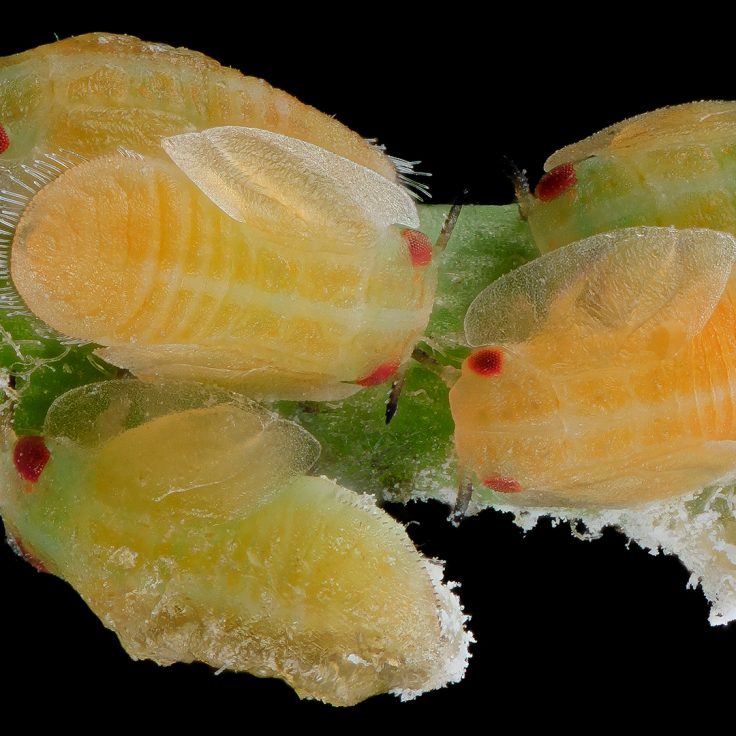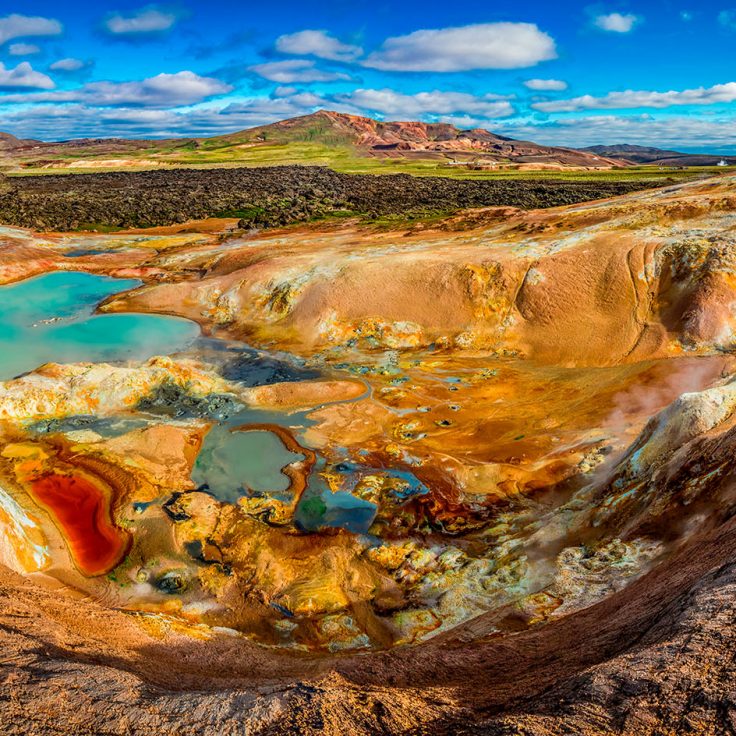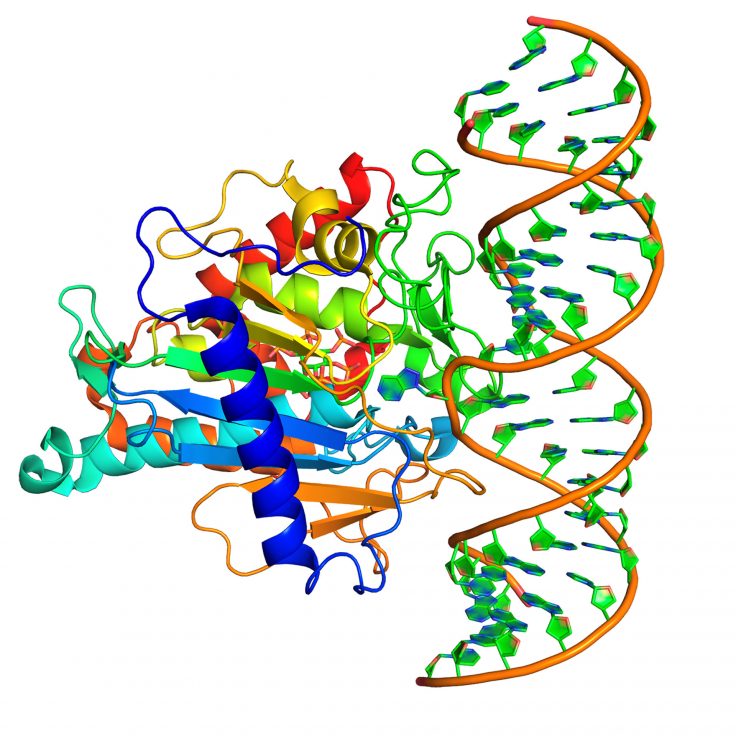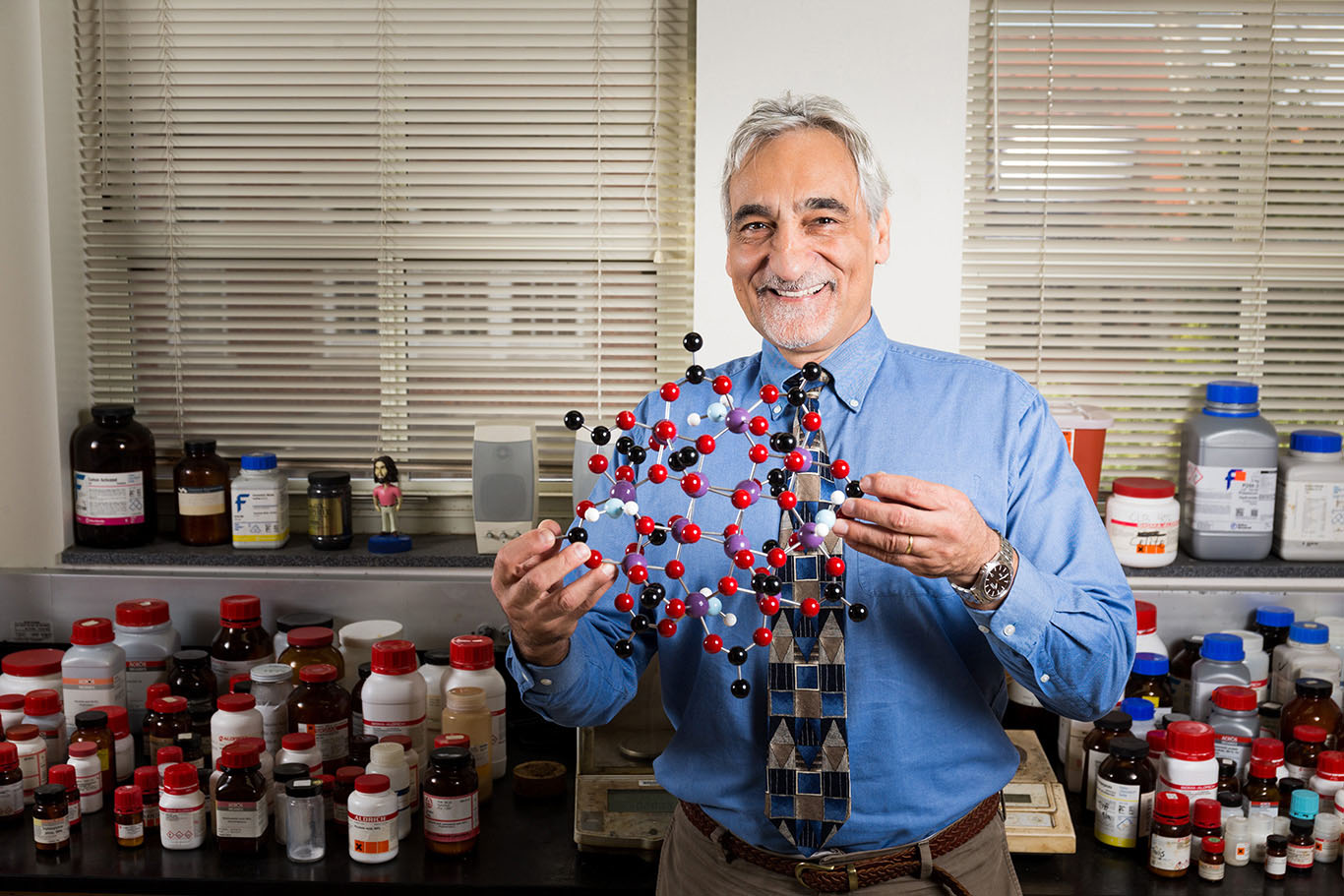
Professor George Christou displays a model of a nano-magnet. Bernard Brzezinski/UF Photography
Small but Mighty
UF professor discovers the world’s smallest magnet.
If you thought electronics couldn’t get any smaller or more powerful, consider this: Distinguished Professor of Chemistry George Christou has discovered the world’s smallest magnet. He recently received acclaim for his discovery of single-molecule magnets and other magnetic metal-oxo compounds — microscopic, long-lasting substances with applications to medical, computing, and industrial technologies. In May, the United Kingdom’s Royal Society of Chemistry awarded Christou the 2016 Nyholm Prize for Inorganic Chemistry for his pioneering work.
Magnetic nanotechnology is crucial to equipment such as MRIs and space exploration devices.
Unlike the refrigerator magnets you know, the magnets Christou studies are created at a molecular level. They can be as small as two nanometers, or about the width of a strand of human DNA. These molecular nano-magnets may be grown in crystals to offer 3-D storage of information. The discovery of single-molecule magnets may contribute to tremendous advancements in computing by exponentially increasing the amount of data that could be stored in a minuscule space. It may seem like science fiction, but Christou says, “It’s only a moment away from science fact.”
Magnetic nanotechnology is crucial to equipment such as MRIs and space exploration devices. In addition, single-molecule magnets have fascinating quantum properties and may be used in quantum computing, which scientists think may improve codebreaking, physics calculations, and artificial intelligence. Since the discovery, the community of scientists working on single-molecule magnets has continued to grow, and Christou organizes an international workshop every two years on the topic.
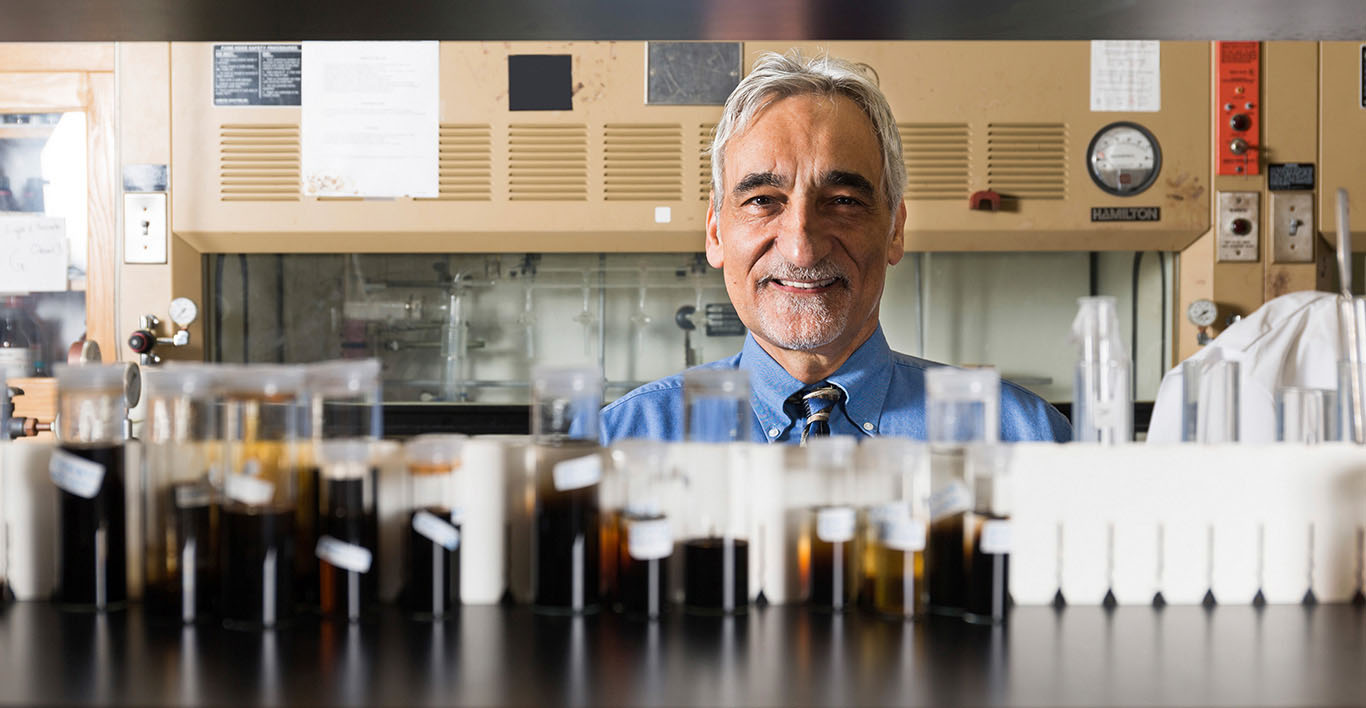
George Christou was one of only a handful of chemists on the Highly Cited Researchers list for 2014 and 2015. In 2016, the American Chemical Society granted him the Southern Chemist Award. Bernard Brzezinski/UF Photography
Christou arranges a broad-topic international conference focused on intriguing research in the hard sciences, consults at the University of Cyprus, and organizes an annual symposium in Gainesville for student researchers at 14 Florida universities and colleges. He has won UF’s Teacher-Scholar of the Year, been named an American Chemical Society fellow, and been selected to the Thompson Reuters Highly Cited Researchers list, which contains just over 200 chemists from around the world. Given his trans-Atlantic impact, knack for charismatic teaching, and his tremendous experience in the technology of metal chemistry, one might call him the Iron Man of UF.
To support the people, program, or research featured in this story, please visit
